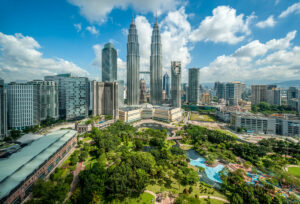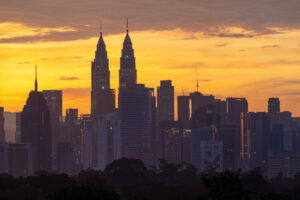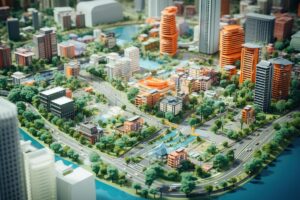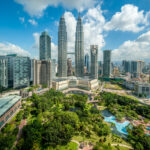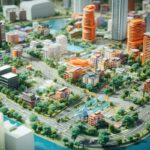Urban sprawl, a significant challenge faced by rapidly urbanising cities, is especially pronounced in developing countries like Malaysia. As cities expand, they encounter unique developmental challenges, with urban sprawl being a pivotal issue that shapes the future of metropolitan areas.
Understanding and addressing this phenomenon is crucial for sustainable urban development in Malaysia. Since it is pertinent in developing countries, much research has been done to resolve it while simultaneously overcoming the issue.
Defining Urban Sprawl
Urban sprawl refers to the rapid and unplanned expansion of cities and towns, often characterised by low-density residential development, single-use zoning, and a heavy reliance on private vehicles. This expansion leads people to move from city centres to outer areas, seeking more convenient or suitable living conditions.
Historically, the concept gained momentum with the advent of the Industrial Revolution around 1900, according to The Yale Ledger. This period is when private cars became a popular mode of transportation, facilitating suburban development due to their accessibility.
Read More: Living in the City or Suburbs is Better in Malaysia?
The Multifaceted Impacts of Urban Sprawl
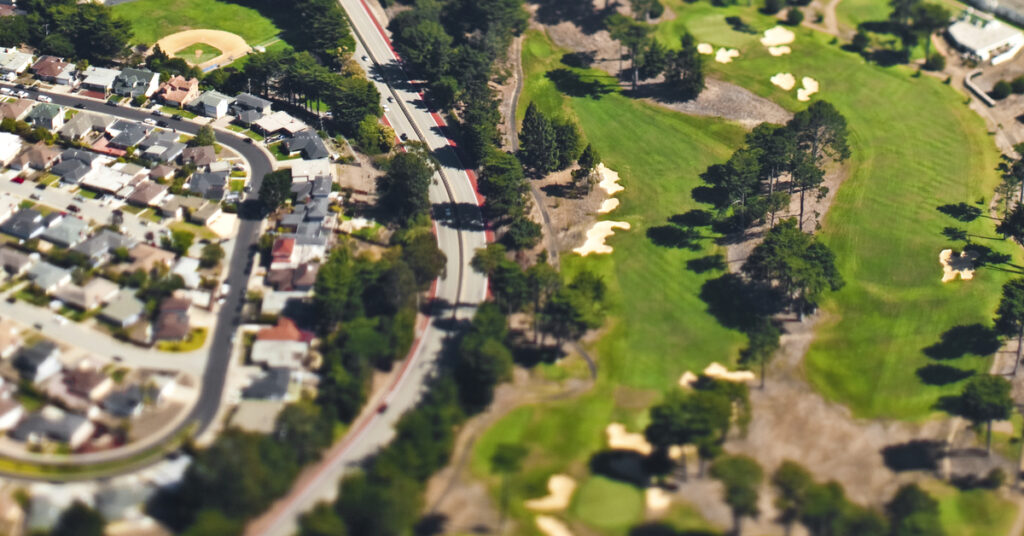
Urban sprawl is a complex issue with various implications for the environment, health, and social fabric of cities and countries.
Environmental Concerns
One of the prominent impacts of urban sprawl is its contribution to environmental degradation.
Increased reliance on personal motor vehicles leads to higher carbon emissions and traffic congestion. The spread of urban areas also encroaches on natural habitats, disrupting ecosystems.
Health Implications
Moreover, the urban design of sprawling cities can negatively affect public health. Limited accessibility to essential services encourages vehicle dependence, discouraging physical activities such as walking or cycling. This lifestyle shift can ultimately lead to health issues like obesity and related diseases, including hypertension.
Social Issues
It also impacts the social dynamics of communities. The lack of public spaces, such as parks and playgrounds, limits opportunities for social interaction and community engagement, leading to a decline in social cohesion.
Generally, most cities go through phases of urban sprawl. This is especially true for countries going through stages of development. Even major cities in countries like the United States, as well as cities in European countries, went through stages of sprawl. Malaysia is no exception.
Read More: Creating Values and Connections with Placemaking Malaysia
Urban Sprawl in Malaysia: Causes and Consequences
In Malaysia, urban sprawl is driven by lower land prices on the city outskirts, new roadways, and a strong preference for private automobiles. The absence of greenbelts and growth limit boundaries further exacerbates this issue.
Urban planning experts often highlight the importance of strategic planning in managing urban sprawl. In Malaysia, rapid urban development has sometimes outpaced planning efforts, presenting challenges such as increased traffic congestion and environmental concerns.
When it comes to city retrofits, we tend to go with the saying “build first, think later”, which is not the ideal approach to urban planning. Over the past 40 years, Malaysian cities have experienced a faster temperature increase than the global average, highlighting the urgent need to address urban sprawl.
Consequently, natural disasters compel communities to reconsider spatial form and land use planning to achieve desirable development.
How Malaysia is Tackling Urban Sprawl
Malaysia is actively taking steps to address the issue. Nonetheless, these efforts require time and continuous commitment to yield visible results.
Urban Planning Initiatives
Firstly, urban planners and managers in Malaysia are exploring alternative urban planning practices to traditional urban sprawl. Concepts like Smart Growth and the Sequential Approach are being considered to create more sustainable urban environments.
Compact Development
Additionally, through higher-density design, compact development aims to use the available space in Malaysia better.
For instance, the government has identified 821 hectares of unoccupied and abandoned land in central Kuala Lumpur and its vicinity with potential for higher-density development.
Therefore, a redevelopment of these lands is possible to encourage urban compactness. The rehabilitation of public open spaces and historic buildings is also underway to promote walkability in the city.
Transit-Oriented Development (TOD)
Next, one of the national efforts to contain urban sprawl in Malaysia is through transit-oriented development (TOD). Malaysia’s TOD approach aims to encourage inclusive land use and mixed-use development.
A prime example is KL Sentral, which integrates transport and urban development, reducing reliance on private vehicles.
Utilisation of Planning Tool
Urban planning tools like Urban Containment Boundary (UCB) and Urban Growth Boundary (UGB) are also being implemented under the second National Urbanisation Policy (NUP2) to control urban sprawl. This policy sought to identify areas suitable for sustainable urban growth, guiding land allocation effectively.
Regulation of Land Use Change
Lastly, adopting stricter land use regulations is critical. Drawing lessons from European countries, Malaysia is working towards coordinating and monitoring land use changes to prevent unplanned urban expansion.
Read More: Realising the New Urban Agenda in Malaysia
Looking Ahead: Shaping Malaysia’s Urban Future
In summation, urban sprawl is a product of short-sightedness and poor planning, whose effects are long-standing and will damage our country in the long run. Hence, addressing urban sprawl is essential for Malaysia’s sustainable development.
While challenging, effective urban planning in Malaysia can significantly mitigate the negative impacts of sprawl. PEQ Consult, as a leading town planner in Malaysia, specialises in developing strategies ranging from town planning to project development, playing a crucial role in shaping a sustainable urban future for Malaysia.



